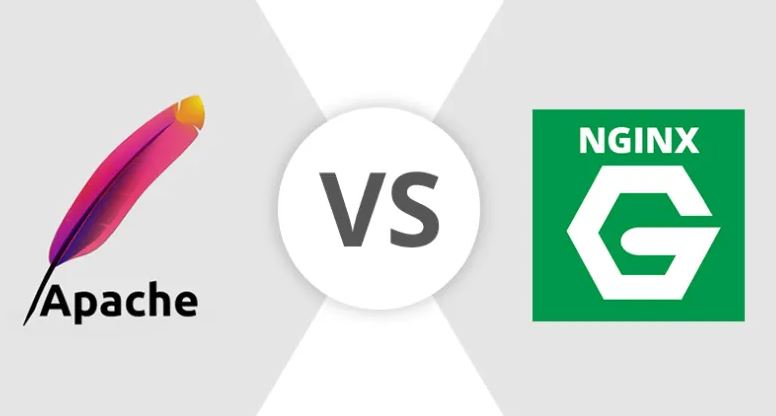

In the IT world, Apache and Nginx are the two most common open-source web servers for use. Both of them are rich in features and handling 50% of the total internet traffic. Although they do the same thing, hosting and serving web content, they have many differences that one needs to consider while choosing the right one for use.
In this post, we are going to discuss the difference between these two servers to let you decide which is suitable for you.
What is Apache?
Apache is an open-source web server and also known as “httpd”. It was released in 1995, and in 1996, it became the most popular server on the internet. This server is developed and managed by the Apache Software Foundation. It is great for the Linux operating system and operational for around 46% of all websites. Because it is flexible, powerful, and supports a wide range of software, administrators mostly select it. It is expandable and can process different interpreted languages without any external software.
What is Nginx?
Nginx web server is released in 2004 and is widely known in the world today. This server is designed to take high loads and can provide better efficiency. Initially, it was used as an additive of the Apache. Today it is a popular web server and can perform all server tasks efficiently. It provides high flexibility and is the first choice of people. The web server is capable of serving static content at high speed and efficiency because of its unique design.
Apache Vs Nginx:
- Performance:
When it comes to the performance of the server, Apache performs excellently for low-level traffic. Apache contains .htaccess files and performs a read session to read it before delivering the web content. This way, the process gets complex when multiple users request web content at the same time. This delays the performance of Apache.
Nginx web server is capable of processing multiple sites at the same time. It doesn’t have any .htaccess file which has to be read before delivering the web content. Therefore, it is faster than the Apache. Moreover, Nginx consumes low memory space than Apache while dealing with a higher number of requests.
Flexibility:
Although the flexibility of these two servers is quite the same, Apache is more flexible in some points. This server has a dynamic module loading that lets you load and unload the modules easily. This allows you to customize the web server through modules.
Nginx server is not that flexible in loading and unloading modules. Previously, the admin needs to compile the modules into the Nginx binary. Though it got support for dynamic module loading in 2016, most modules nowadays still don’t support dynamic loading.
Operating System Support:
Virtually, it can be said that both Apache and Nginx support all modern operating systems. Apache supports all windows, Linux, and other operating systems. Also, this is ideal for those who need an open-source web server with multiple features to run the Windows Operating System.
Nginx offers full support to Linux and partial support to windows and other platforms. Also, it requires additional effort to operate it on windows as it is not suitable for this OS.
Static And Dynamic Content:
Static and dynamic are the two main methods of creating websites. The static content is like HTML files that can’t be changed. This content can only be delivered to the user by the web server as it was uploaded. If you want to change the static content, then you will need to recreate the file. Both Apache and Nginx can serve static content efficiently according to the request of the website visitor.
Dynamic content is created using certain programming languages like PHP, Python, or Ruby. With the help of these programming languages, you can create specific scripts that are executed by web servers. According to the design of the scripts, different users can get different data from the website. Apache can process the dynamic content directly and deliver the desired content to the user. But Nginx is incapable of processing dynamic content and requires an external program to process it.
Conclusion:
Both Apache and Nginx web servers are widely popular for quality performance and flexibility. They also have their advantages and disadvantages. So, you can choose the server by checking which server will work for your specific needs. As there are several differences between these servers, you will need to check them effectively before implementing any one of them. Because it is not easy to decide which web server can suit every user, it is better to select a server considering your individual requirements.
